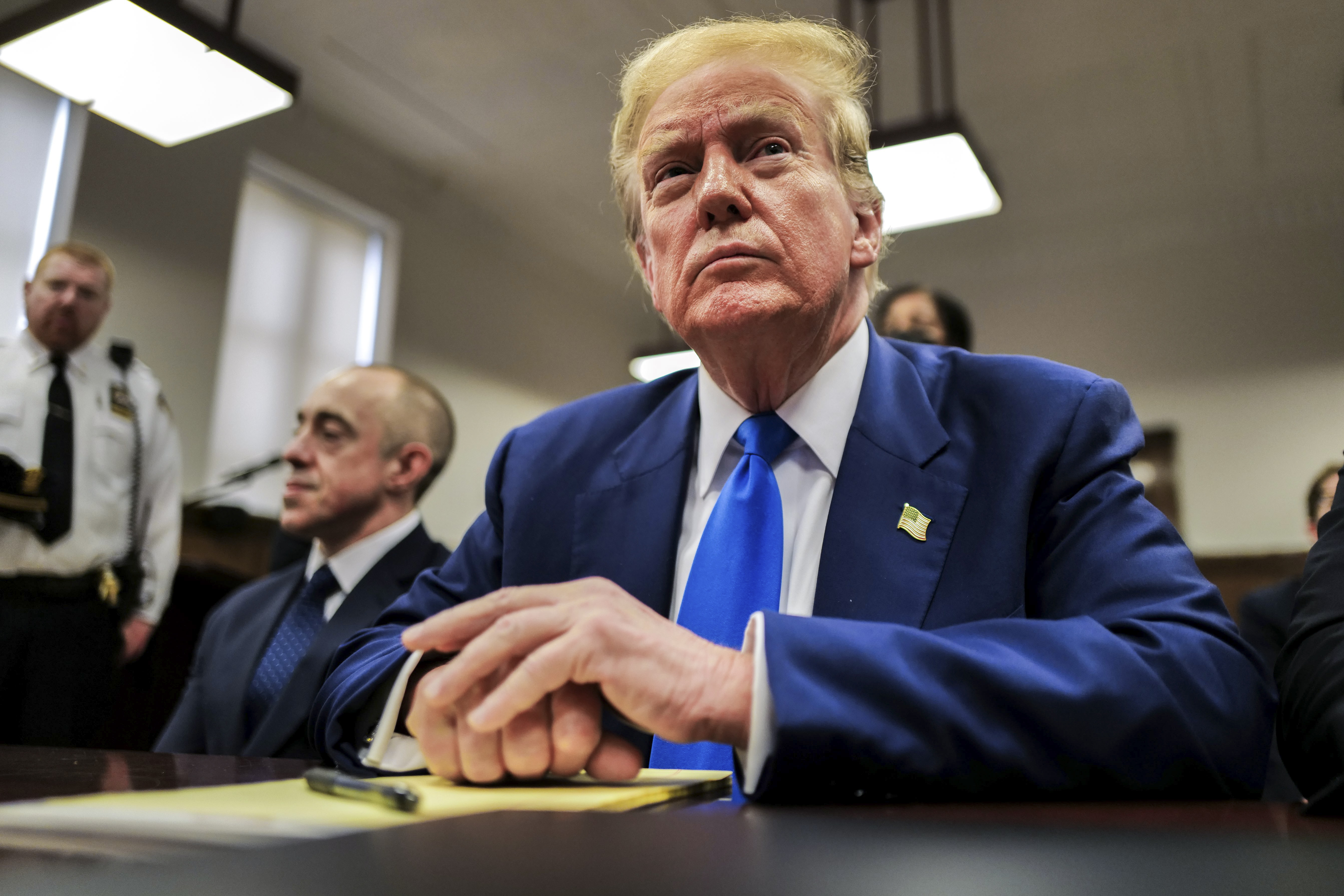Updated
Trump Aide Breaks Down in Tears on the Witness Stand
Save

Former President Donald Trump attends his trial for allegedly covering up hush money payments at Manhattan Criminal Court on May 3, 2024 in New York City. Charly Triballeau-Pool/Getty Images
Here is the latest
•
Trump Criticizes Bragg After Leaving Courtroom
•
Judge Omits Trump Contempt Ruling From Evidence
•
Hicks: Trump 'Really Values' Melania's Opinion
•
Trump Hands-On With Media: Hicks
•
Hicks Says Cohen Inserted Himself in Campaign